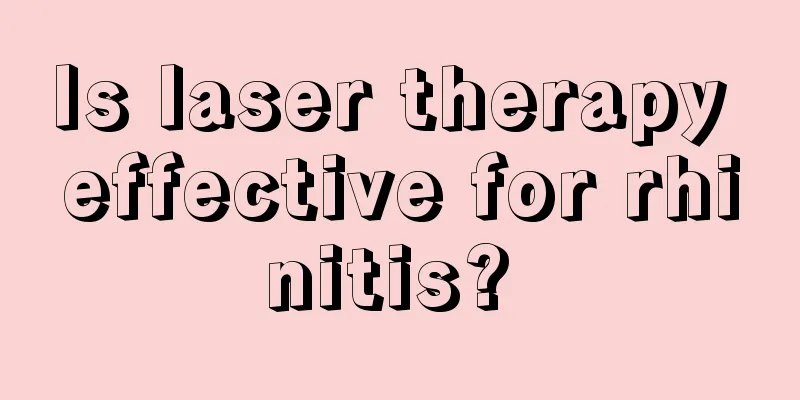Can I sweat steam if I have lumbar disc herniation?

|
In a sense, sweat steaming is effective in treating lumbar disc herniation. It can remove dampness and inflammation and relieve local pain, but it is impossible to completely cure it. At present, there are many methods for treating lumbar disc herniation clinically, such as traction, physical therapy, etc. In addition, shortwave, ultrashort wave therapy, electrokinetic therapy, superstimulation current therapy, manual therapy, etc. are also effective. 1. Can I use sweat steaming to treat lumbar disc herniation? Patients with lumbar disc herniation can do sweat steaming. They should pay attention to bending over as little as possible, and pay attention to getting in and out of bed, and cooperate with waist and back muscle exercises. This is effective for some patients and can prevent the recurrence of symptoms. Although sweat steaming has a certain therapeutic effect on lumbar disc herniation, it is of little significance for the treatment of lumbar disc herniation. For lumbar lesions, general conservative treatments include local hot compresses on the waist, physical therapy, traction, sleeping on a hard bed, absolutely avoiding excessive force on the waist, and resting for 3 months. If the above treatments are not effective, you can use prednisone and lidocaine to be injected into the epidural space through the sacral canal fissure, which has a better effect. If the above conservative treatments are ineffective, surgical treatment needs to be considered. 2. Common treatment methods for lumbar disc herniation (1) Shortwave and ultrashort wave therapy: In the early stages of lumbar disc herniation, in order to improve blood circulation in the affected area, eliminate possible inflammatory reactions such as exudation and edema, and relieve pain caused by compression or stimulation of the nerve roots. Generally, short-wave and ultrashort-wave electrotherapy are used. During treatment, the two electrodes can be placed opposite each other in the lumbar sacral region or in parallel in the lumbar sacral region and the back of the affected leg. Warm temperature, once a day, 20-40 minutes each time, 15-20 times as a course of treatment. (2) Intermittent electrotherapy: Small circular electrodes can be used to treat points in the lumbar sacral region and along the course of the sciatic nerve, with dense waves for 2 to 5 minutes; sparse waves for 5 minutes; and intermittent ascending waves for 5 minutes. 1-2 times a day, 15-20 times as a course of treatment. (3) Superstimulation current therapy: Two electrodes of 8 to 12 cm2 can be used, one placed horizontally on the sacrum and the other placed vertically on the waist. After connecting the power supply, adjust the power to 8-12 mA as soon as possible. After the strong sense of electricity disappears, increase the power to 18-23 mA within 2-7 minutes. Each treatment lasts 15 minutes. Once a day or every other day. If effective, continue treatment up to 6 to 12 times. (4) Manual therapy for lumbar disc herniation: This manual therapy is a treatment method in which the operator uses his hands to perform passive movements such as pushing, pulling, and rotating the patient's bone joints. It takes the functional anatomy of bones and joints as the treatment basis, takes the biomechanical principles of bone and joint activities as the guidance, and adopts corresponding manipulation techniques to achieve the purpose of improving the patient's bone and joint function and alleviating clinical symptoms. |
<<: Reasons for high hcg values in Down syndrome screening
>>: Sleeping posture for bulging disc
Recommend
The function of beard
Beard, also known as mustache, refers to some hai...
What are the symptoms of fibroids?
What are the symptoms of fibroids? I believe that...
Liver cancer is prone to recurrence after surgery. How to prevent it? Do these 4 things to prevent liver cancer recurrence
Liver cancer is a relatively common malignant dis...
The efficacy and contraindications of sweet potatoes
Sweet potatoes are grown in many areas of our cou...
What does the prognosis of early nasopharyngeal carcinoma relate to and what should be done
Early stage nasopharyngeal cancer is easier to tr...
Can I take cefuroxime for pelvic effusion?
If it is pathological pelvic effusion, it needs t...
Gastric cancer in the elderly is insidious and causes abdominal pain and weight loss, so be alert
Oncologists pointed out that the incidence of gas...
What is the best diet during gastric cancer treatment
When patients with gastric cancer are undergoing ...
What are the dangers of a slow heartbeat
The function of the heart changes differently eve...
Can't lower my head because my cervical spine hurts
Nowadays, there are many people who are addicted ...
Is children's bamboo fiber tableware toxic?
Tableware is a necessary tool for modern people t...
Is fetal heart rate of 135 normal?
When pregnant women are doing fetal heart monitor...
Scrape test can help high-risk groups screen for cervical cancer
Cervical smear cytology was proposed by an Americ...
How long does it take for the hormone face to stop turning red
Many people are on hormones. The so-called hormon...
Should I continue running if my legs are sore?
Everyone will feel muscle soreness when they firs...









